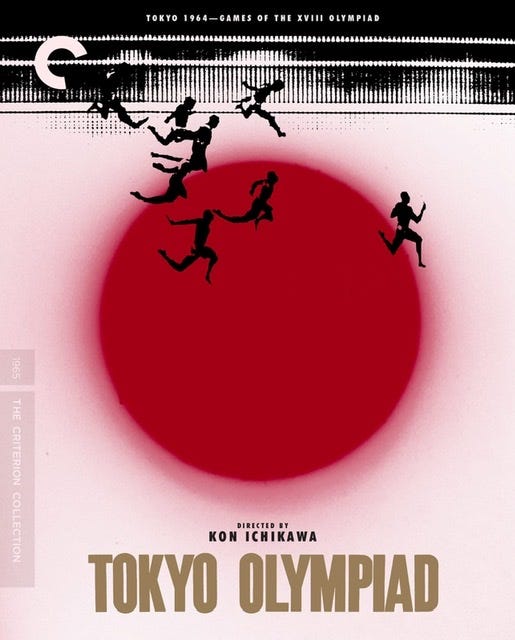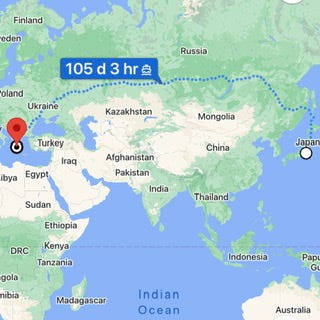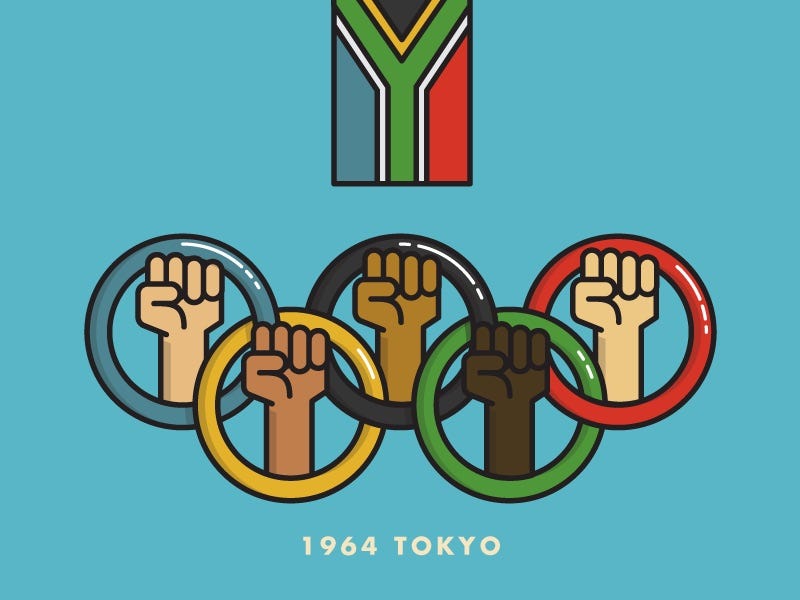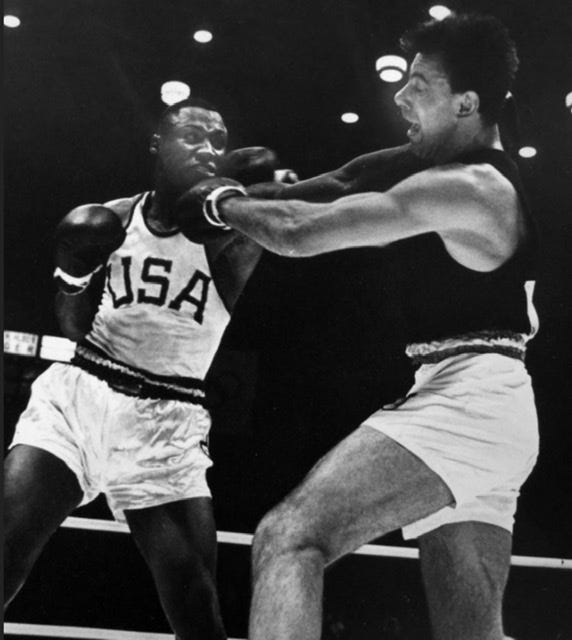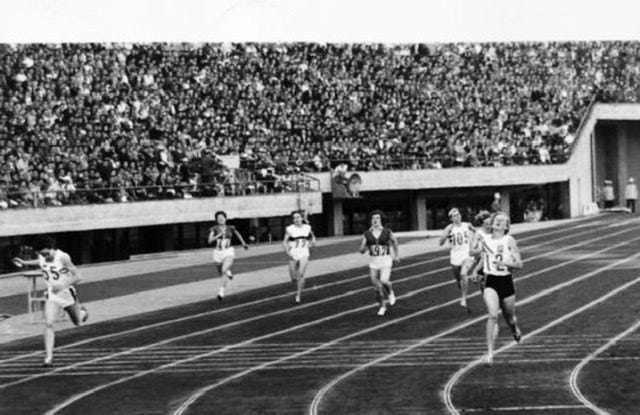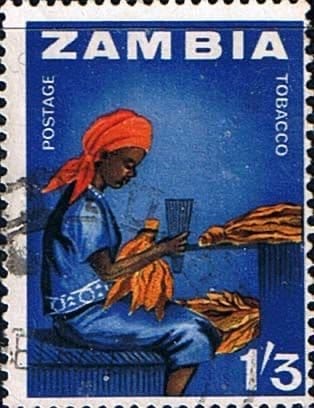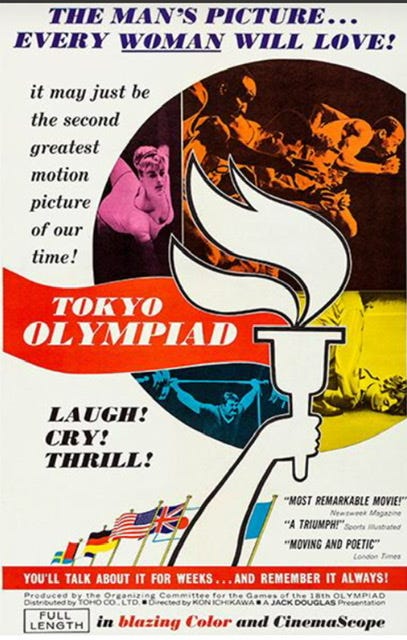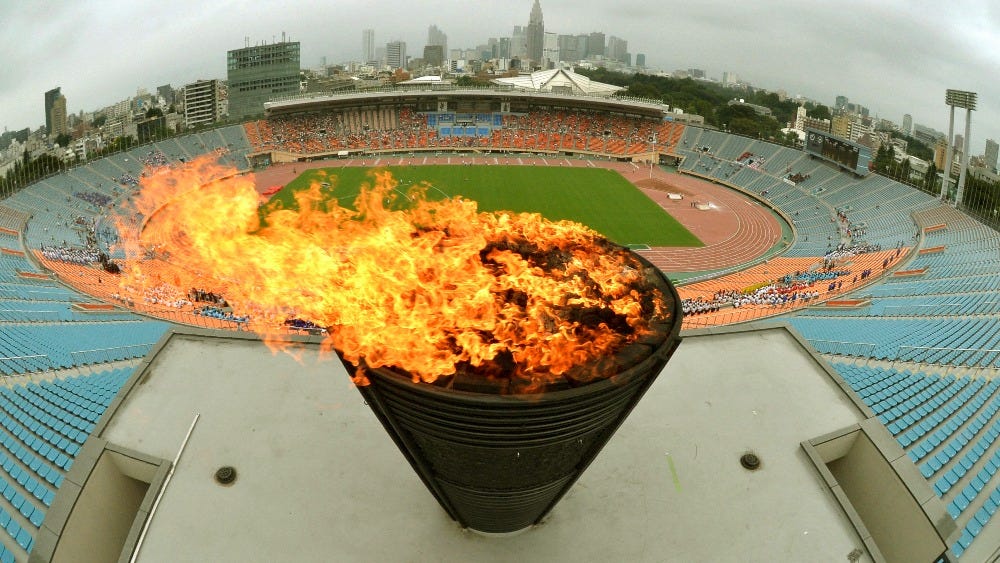The 1964 games of the XVIII Olympiad were the first ever held in Asia, and a very big deal. So was the famous documentary filmed at the time, much of which ended up on the cutting room floor.
The first Tokyo Olympics were the first in history to be broadcast live via satellite. Two million tickets were sold for the indoor and outdoor events. International viewership has been estimated between 600 and 800 million.
The Olympic flame was lit in Olympia, Greece, on August 21, 1964, and the Torch Relay, a distance of 71,868 miles, began. It ran throughout Asia (flown from Istanbul, Beirut, Tehran, Lahore, New Delhi, Calcutta, Rangoon, Bangkok, Kuala Lumpur, Manilla, Hong Kong and Chinese Taipei) before the flame reached the island of Okinawa on September 7. Relays were held in each major city en route.
The first runner on Japanese soil was Isamu Miyagi, who took the torch to the Okutakeyama Stadium on Okinawa. The flames were split into four that would take different routes so more could enjoy the spectacle. All were united Oct 9 at Tokyo’s Imperial Palace.
1964 highlights included:
The exclusion of South Africa for their practice of apartheid. At previous Olympics they had come with segregated teams. In 1964 the International Olympic Committee put an end to it in a very public way.
The Olympic flame’s last runner was Yoshinori Sakai, who was born in Hiroshima on August 6, 1945, the day the atomic bomb was dropped on that city.
Judo and volleyball were introduced at these Olympics. The women's pentathlon (shot put, high jump, hurdling, sprint and long jump) was also a new event.
Reigning world champion Japanese freestyle wrestler Osamu Watanabe ended his career with a gold medal for Japan, retiring as the only undefeated Olympic champion to date at 189–0.
First use of computers to keep Olympic statistics.
Future heavyweight champ Joe Frazier, won a gold medal in heavyweight boxing while competing with a broken thumb.
Australia’s Betty Cuthbert won the 400 meters, making her the only Olympian, male or female, to have one a gold medal in all sprint running events: 100, 200, and 400 meters.
Billy Mills, a runner from the Oglala Sioux tribe, won the gold in the men's 10,000 meter.
Soviet gymnast Larisa Latynina won 2 gold, 1 silver, and 2 bronze medals. Her record for most Olympic medals at 18 stood until broken by American swimmer Michael Phelps in 2012.
The USA’s Don Schollander won four gold medals in swimming.
Ethiopia’s Abebe Bikila became the first person to win the Olympic marathon twice.
Bob Hayes from the US won the 100 metre title in 10.06 seconds, equaling the world record, and set the current record for the fastest relay leg in the 4×100 m. He would play 11 seasons for the Dallas Cowboys and is the only athlete to have an Olympic gold medal as well as a Super Bowl ring.
Zambia declared its independence on the day of the closing ceremony of the 1964 Summer Olympics, becoming the first country ever to have entered an Olympic games as one country (Northern Rhodesia), and left it as another.
Tokyo Olympiad (1965) is considered one of the greatest sports films of all time. Director Kon Ichikawa employed all the cutting edge technology available in his masterpiece, and the result is true art.
Which is not what the Japanese government was hoping for.
Ichikawa wanted to portray humanity amidst pressure and drama. Japan’s Olympic Committee wanted just the facts, the medals, and a piece that would show the country in a favorable light.
The two sides fought it out until the director’s original 165 minutes was slashed to 93 minutes and given an American narrator for most of the releases. It looked and sounded like a product for NFL Films, which isn't an awful thing, but it was a far cry from the director’s original cut.
Thanks to the passage of time and the worldwide web, our program includes both versions! The Complete Tokyo 1964 Olympics has 32 more minutes than the original American chopped up release.
Tokyo Olympiad was fully restored in 2013 and has an extra 5 minutes tacked on to the original 165-minute version. It is made possible by the International Olympic Committee, and it maintains Ichikawa’s artistic vision, now in HD. Also included, the full soundtrack of great thrill of victory, agony of defeat orchestrations from Toshiro Mayazumi.
Episode 9 of Adventures of Captain Marvel leads us into a “Dead Man’s Trap” but it’s a beautiful trap, upscaled to 4K and colorized. Finally, from 1942, a classic Goofy cartoon enlightens us about the finer points of Olympic competitions, as well as why Mickey broke up with Minnie.
Put your mask on, pop some corn, and get ready for 2024!
Feature: THE COMPLETE TOKYO 1964 OLYMPICS (1965)
Full Movie: TOKYO OLYMPIAD (1965)
[If preview does not appear on your browser, click the link]
https://olympics.com/en/video/tokyo-1964-official-film




